
McComb History
The McCombLegacies.org website (now archived) was designed to share the history of McComb, Miss., with an emphasis on the stories of working people of all races, women, and young people and how they have strived for equity in labor, civics, education, economics, and the arts.
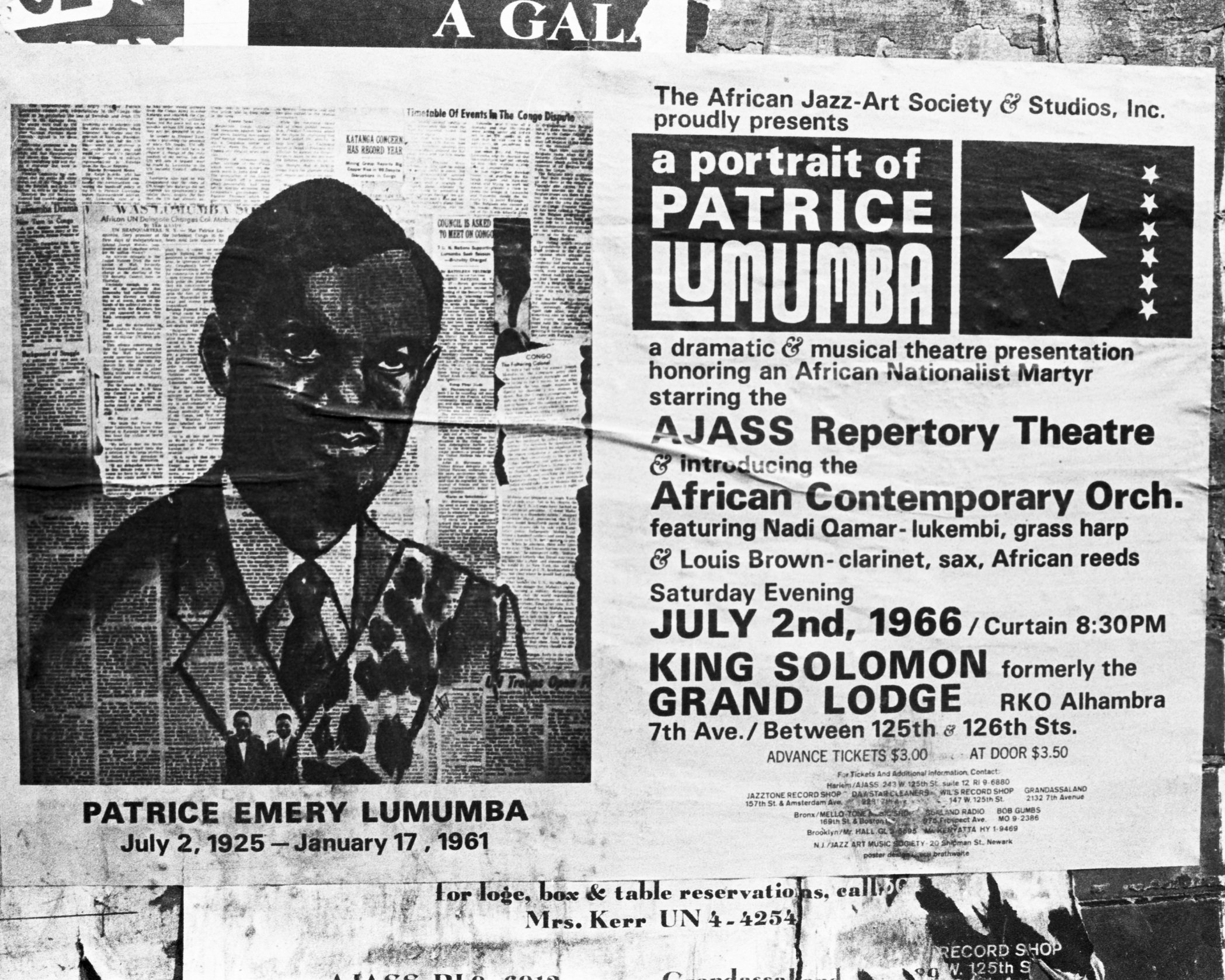
Introduction: Transnational Solidarity
Introduction by Teaching for Change
The Civil Rights Movement in the United States was connected to the international struggle against colonialism. Such well-known African American historians as W. E. B. Du Bois and Carter G. Woodson had long linked U.S. racism and segregation to the colonial system in Africa and other parts of the world.

Introduction: Black Power
Introduction by Teaching for Change
If the nonviolence of the Southern Freedom/Civil Rights Movement frightened mainstream people in the United States, the Black Power movement confronted institutional racism with a youthful boldness and fearlessness unseen since enslaved Africans took up arms in the Civil War. In this section, important “founding documents” of the Black Power movement are examined. In addition, the section explores the impact of Black Power on other oppressed peoples in the United States.

Digital Collections
Resource by Teaching for Change
A list of digital collections with content about the Civil Rights Movement.
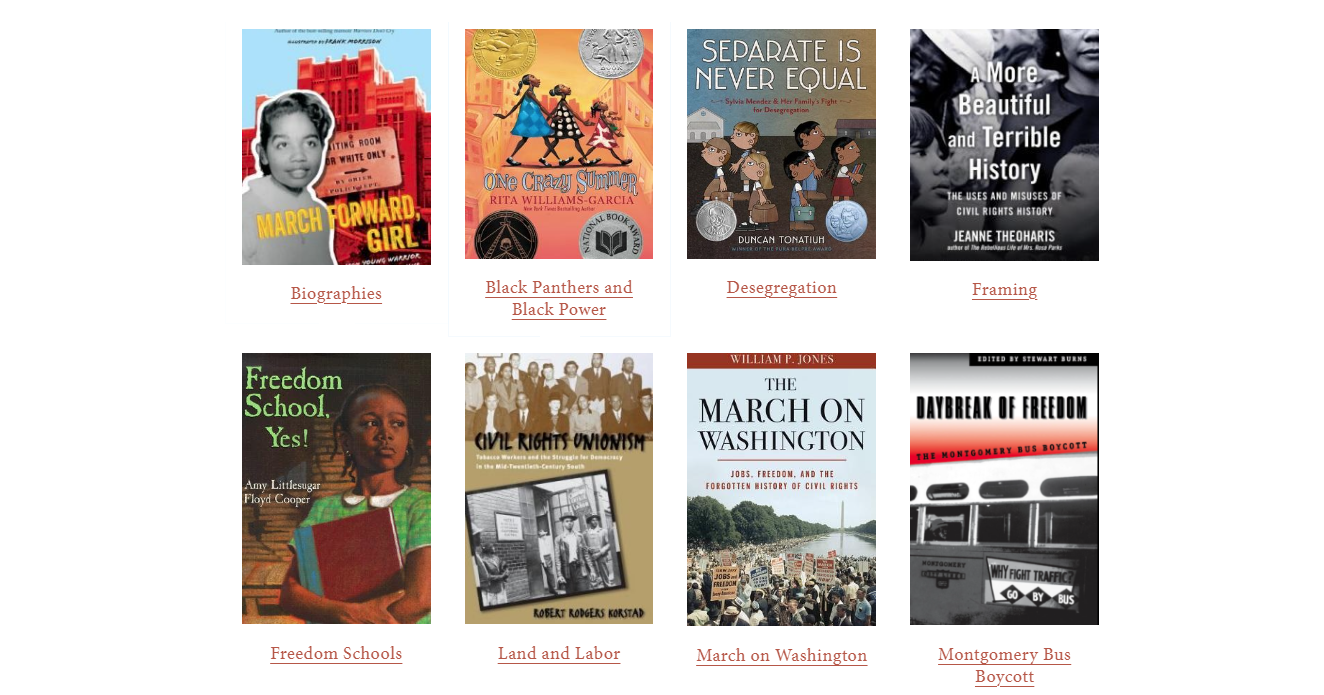
Books About the Civil Rights Movement
Resource by Teaching for Change
Booklists about the Civil Rights Movement by age range and topic.
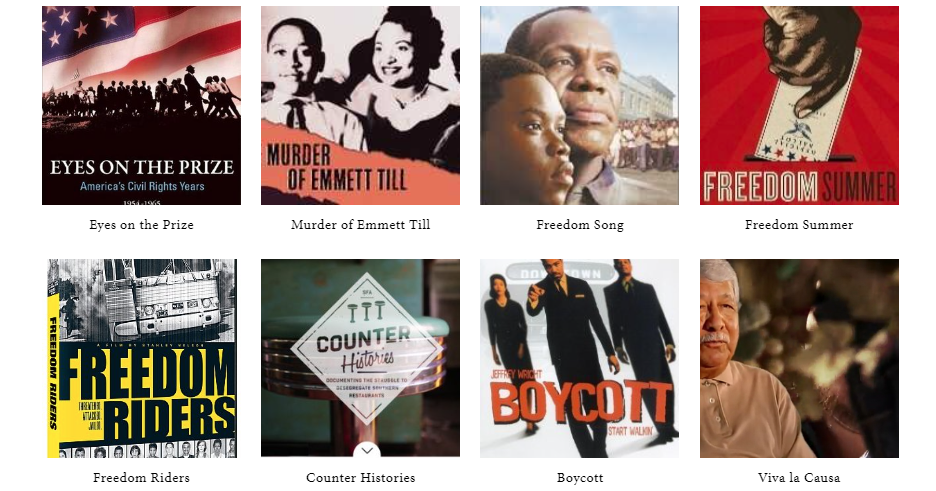
Films About the Civil Rights Movement
Resource by the Zinn Education Project
A selection of films about the Civil Rights Movement.
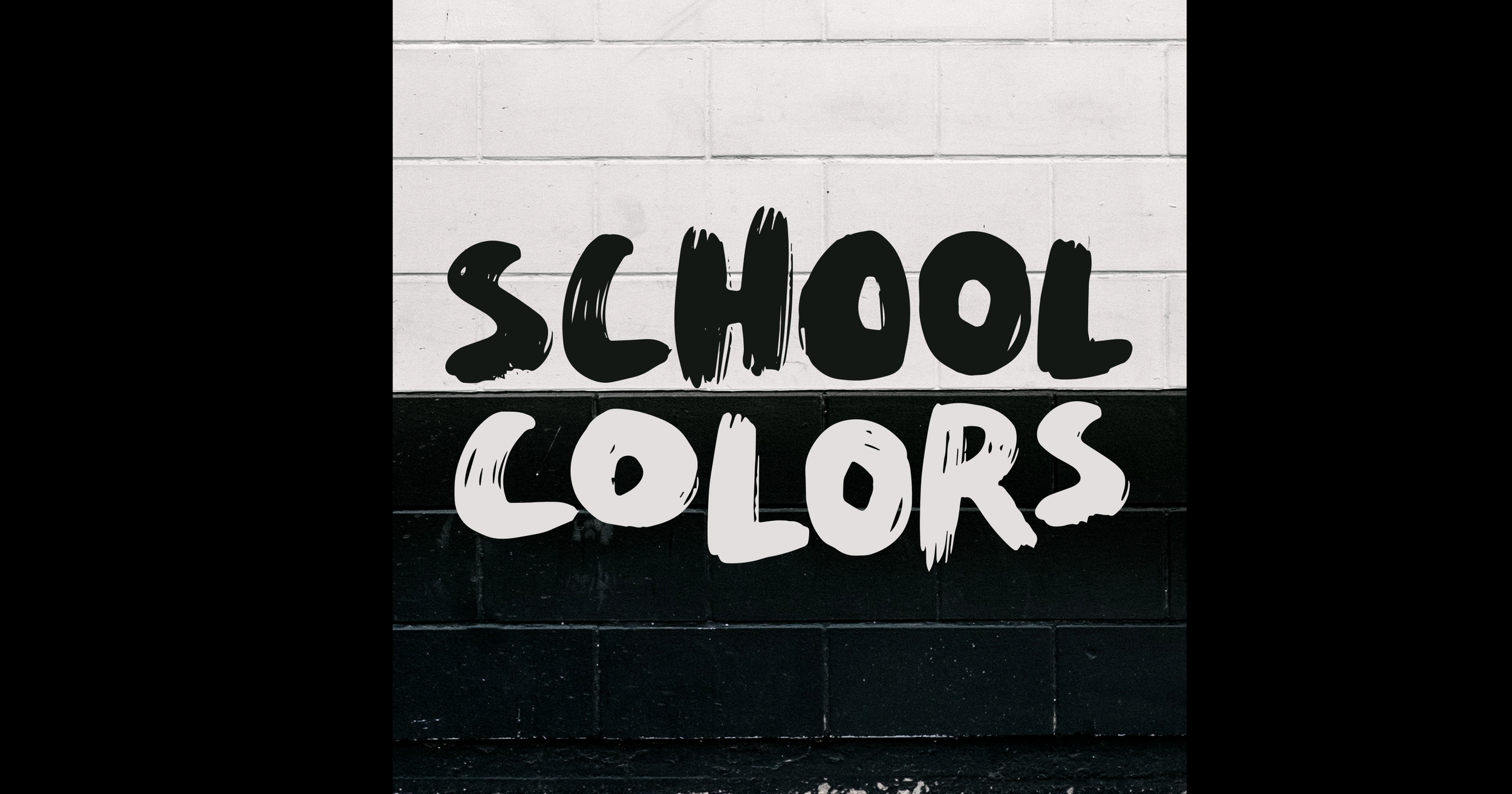
School Colors
Podacast by Mark Winston Griffith and Max Freedman
Season one of the School Colors podcast covers the history of Ocean Hill-Brownsville in Brooklyn where Black and Puerto Rican parents tried to exercise power over their schools and they collided head first with the teachers’ union — leading to the longest teachers’ strike in U.S. history in 1968.
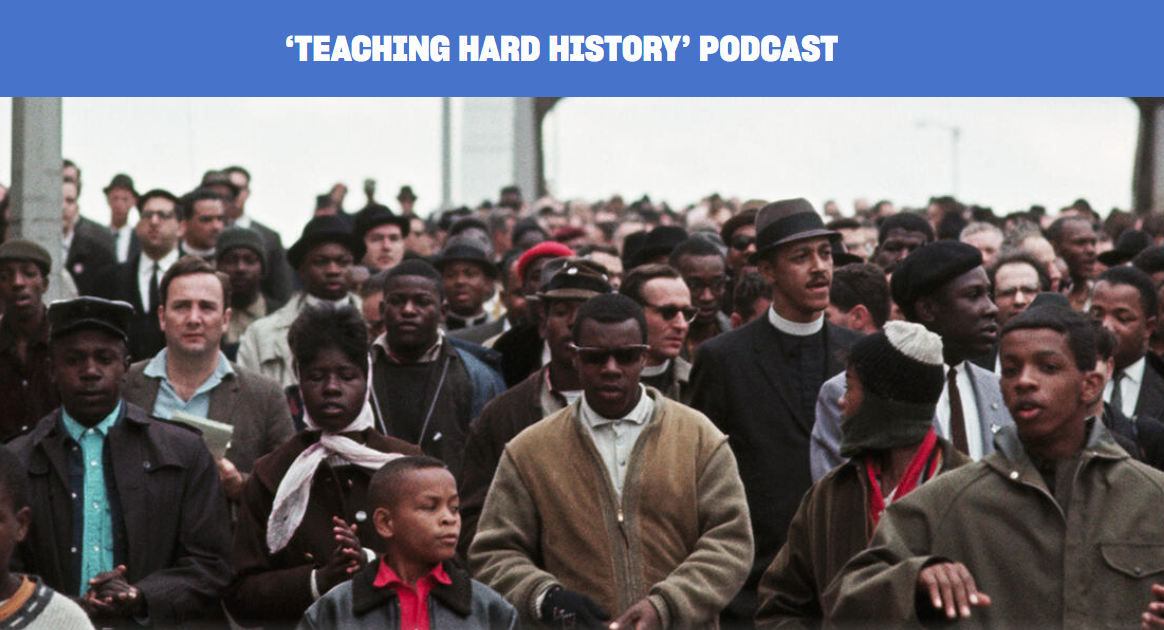
Teaching Hard History
Podcast by Hasan Jeffries
Season 3 of the Learning for Justice Hard History podcast focuses on the Civil Rights Movement.
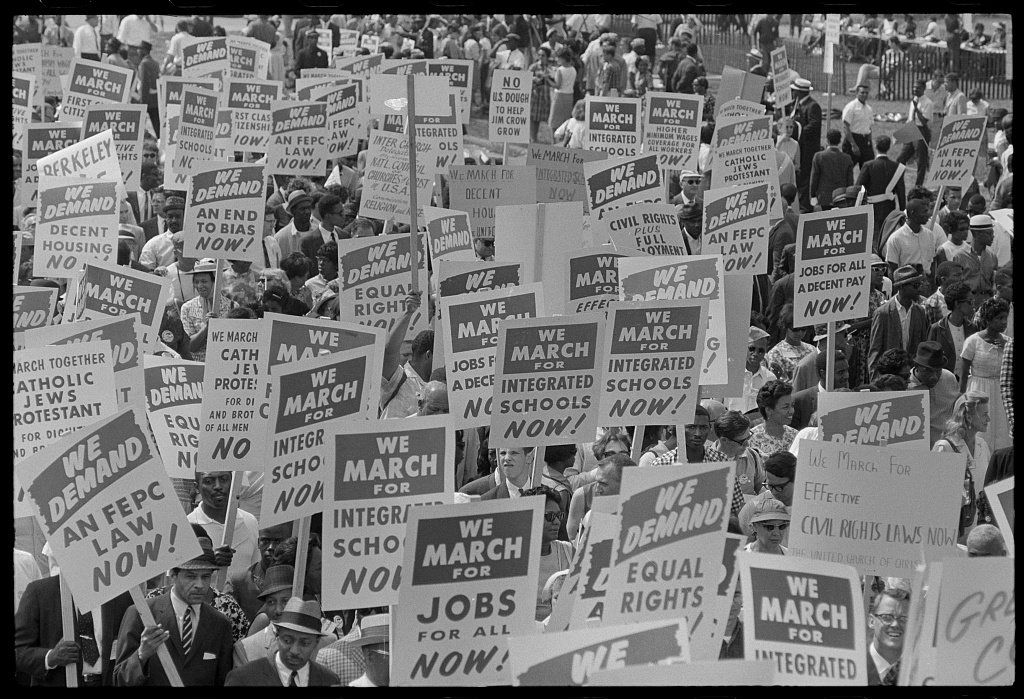
March on Washington Hidden History Quiz
Quiz by Teaching for Change
When most people think of the 1963 March on Washington for Jobs and Freedom, what comes to mind is Dr. Martin Luther King Jr.’s iconic statement, “I Have a Dream.” In truth, there was much more to this historic event than these four words in King’s speech. Teaching for Change designed this quiz about the 1963 March on Washington for Jobs and Freedom to challenge assumptions, deepen understanding, and inspire further learning.
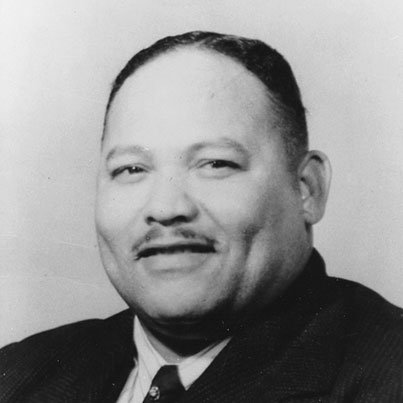
Murder of Reverend George W. Lee
Reading by Zinn Education Project
Rev. George Washington Lee, one of the first African Americans registered to vote in Humphreys County, Mississippi since Reconstruction, used his pulpit and his printing press to urge others to vote. He was murdered on May 7, 1955.
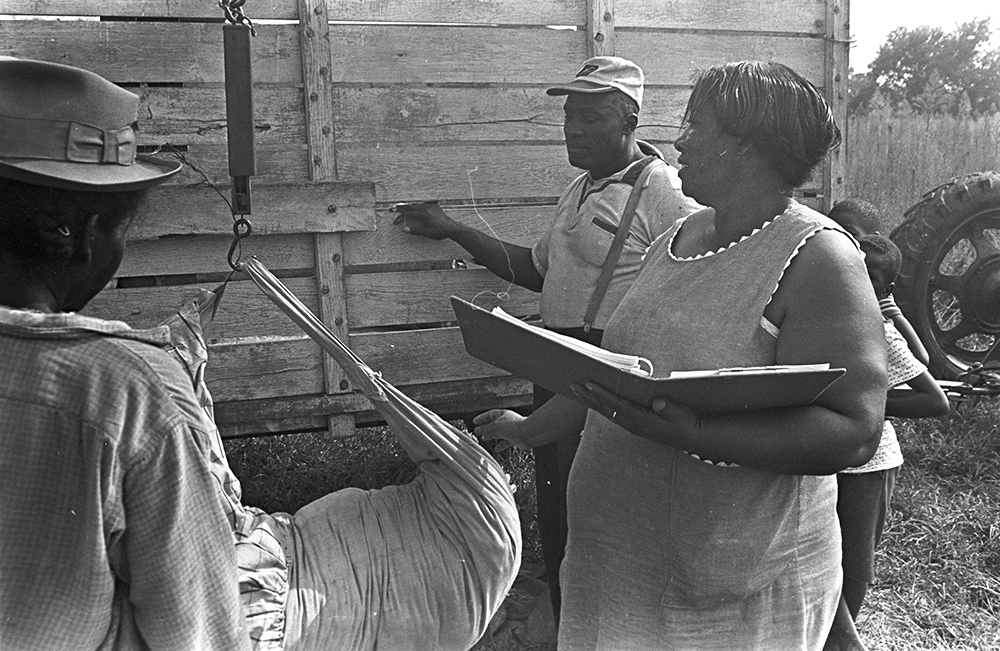
Introduction: Labor and Land
Labor and land have always been central to the struggle for civil and human rights in the United States. In this introduction, we share a few examples.
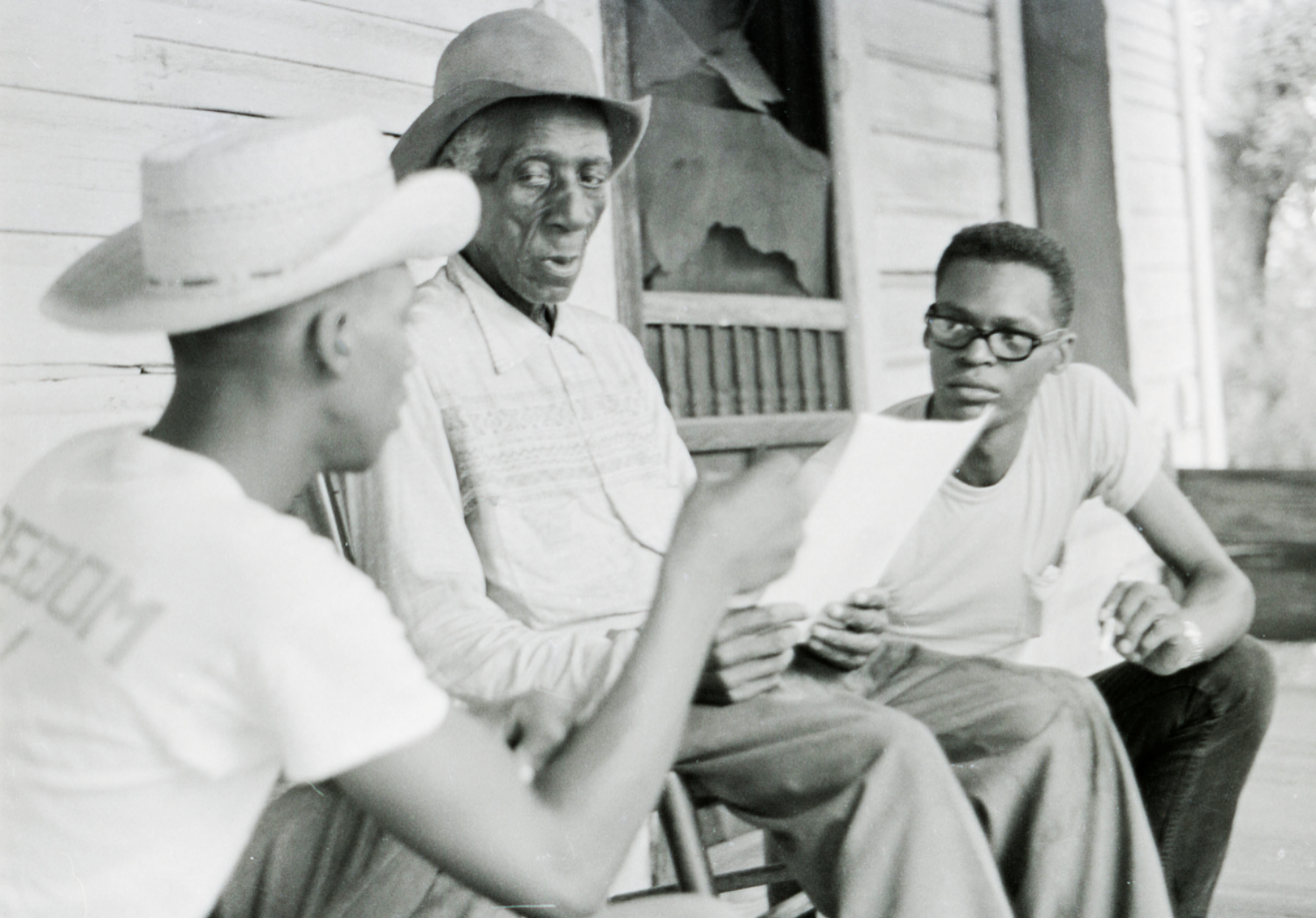
Introduction: Voting Rights
Learning the full history of the fight for voting rights is especially important today, in light of the 2013 Shelby v. Holder U.S. Supreme Court decision that struck down the 1965 Voting Rights Act provisions requiring certain states to obtain federal preclearance before changing voting laws.
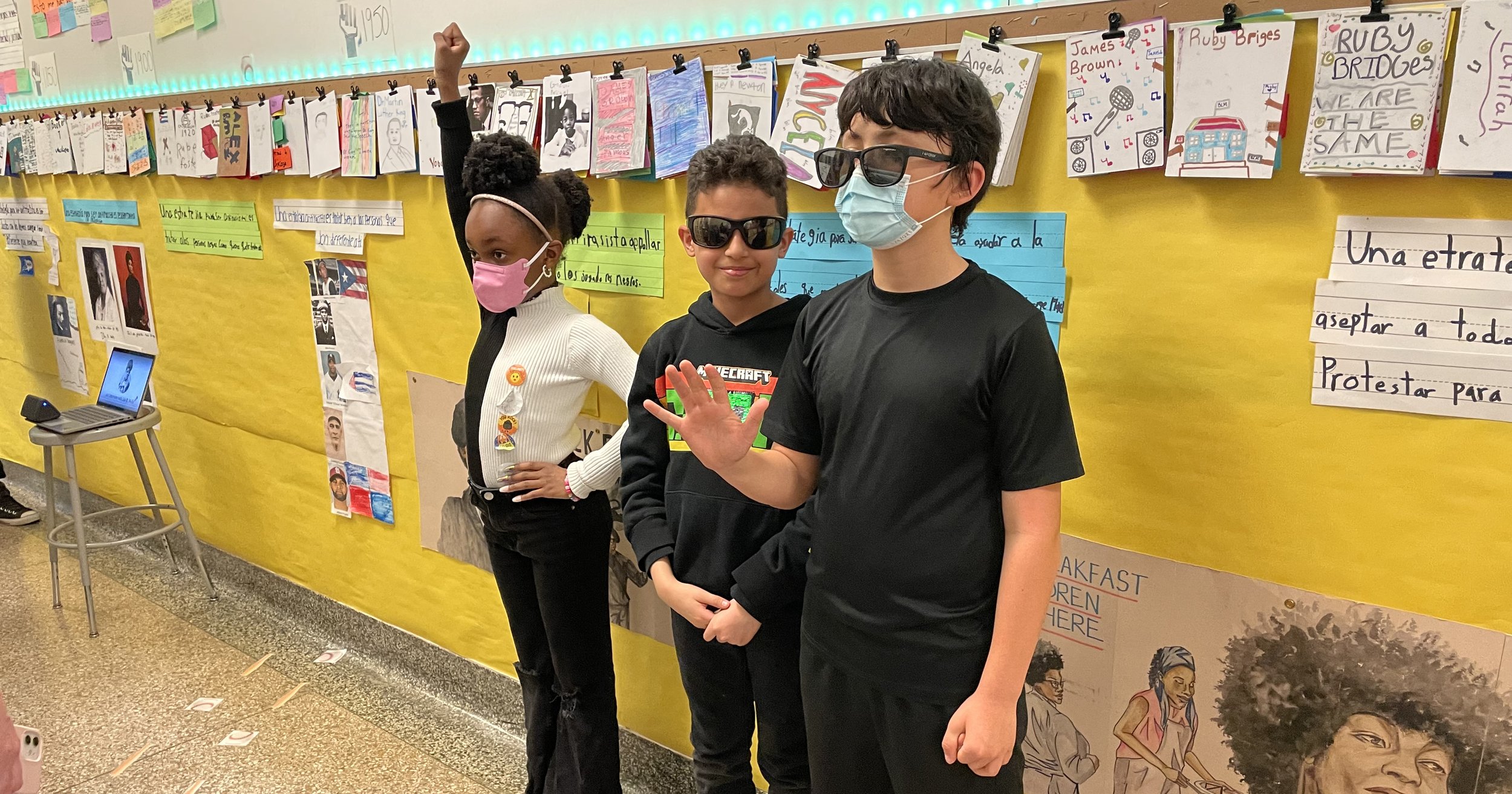
Introduction: Student Engagement
Introduction
This section highlights ways that teachers and young people can work together to learn about and document Civil Rights Movement history — and apply it to their lives today.
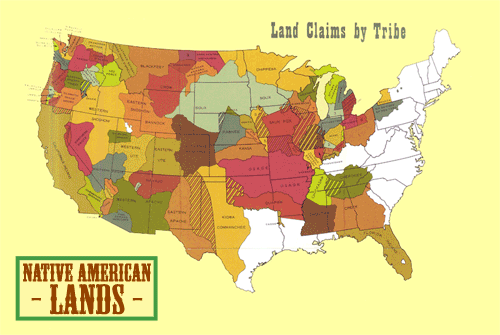
Native American Land Loss Maps
Image by Sam B. Hilliard
Five maps in a chronological series showing post-colonial land cessions in the continental United States and two additional maps showing land claims by tribe and present-day Indian reservations.
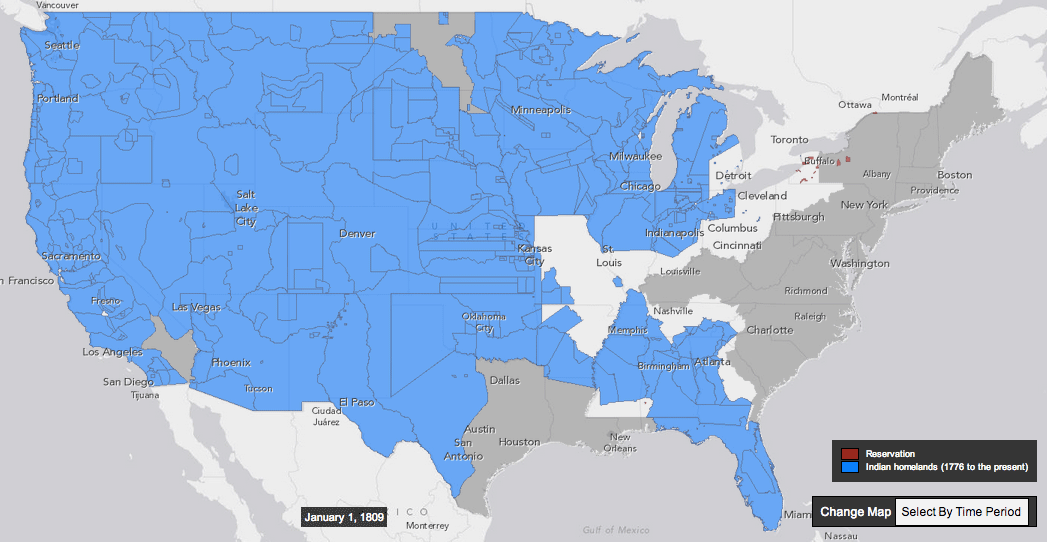
Invasion of America
Interactive Map by Claudio Saunt
This interactive offers a time-lapse vision of the transfer of Indian land between 1776 and 1887.
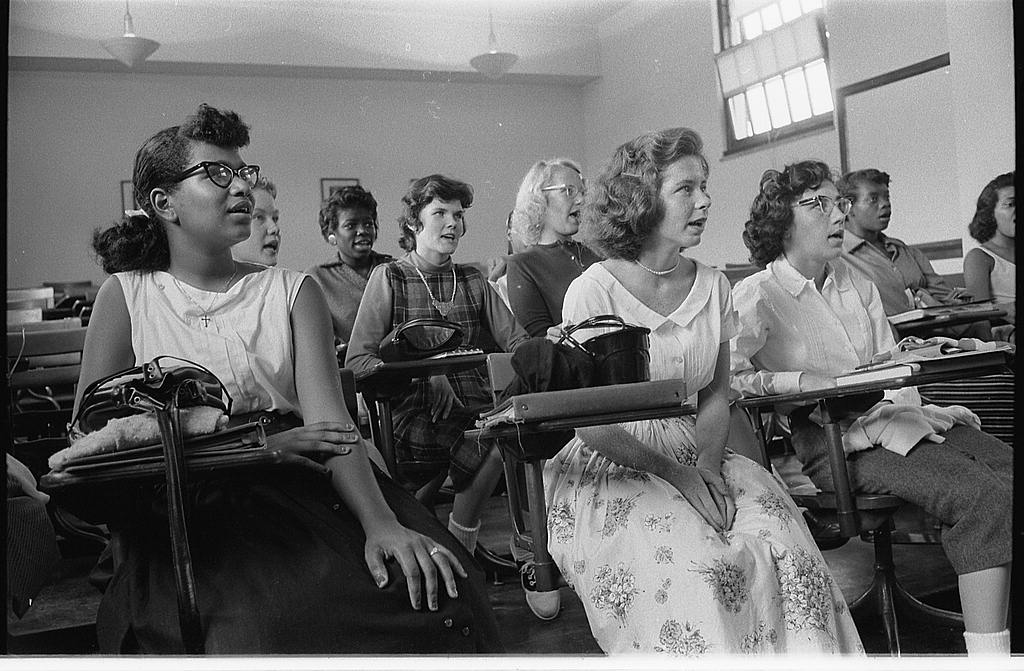
Introduction: Desegregation
Introduction
Throughout U.S. history, communities of color fought for their right to equal access and for human dignity and equity. Desegregation in public schools, transportation, and other accommodations was more than court cases and legal victories. Desegregation was a long struggle led by students, parents, and every day citizens. . . . They were not interested in integration, or the desire to mingle socially or otherwise with whites, but to break and reconstruct institutions that forced people of color into positions of poverty, illiteracy, and political powerlessness.
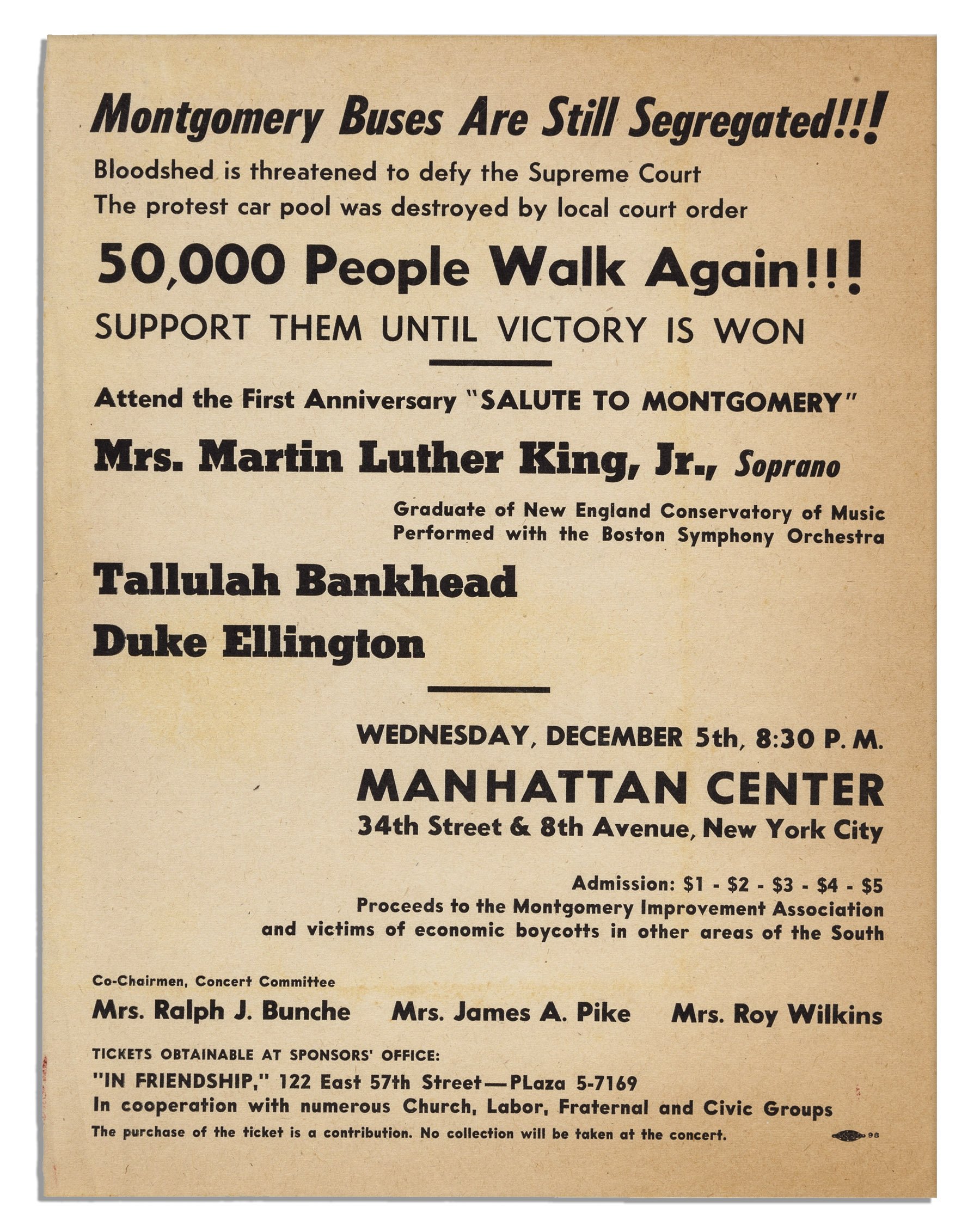
Montgomery Bus Boycott Mythbuster Quiz
Quiz by Teaching for Change
Students are often taught the simplistic narrative that Rosa Parks refused to give up her seat in Montgomery, the buses were desegregated, and the Civil Rights Movement was launched. This quiz helps surface and challenge many of the myths about the boycott.
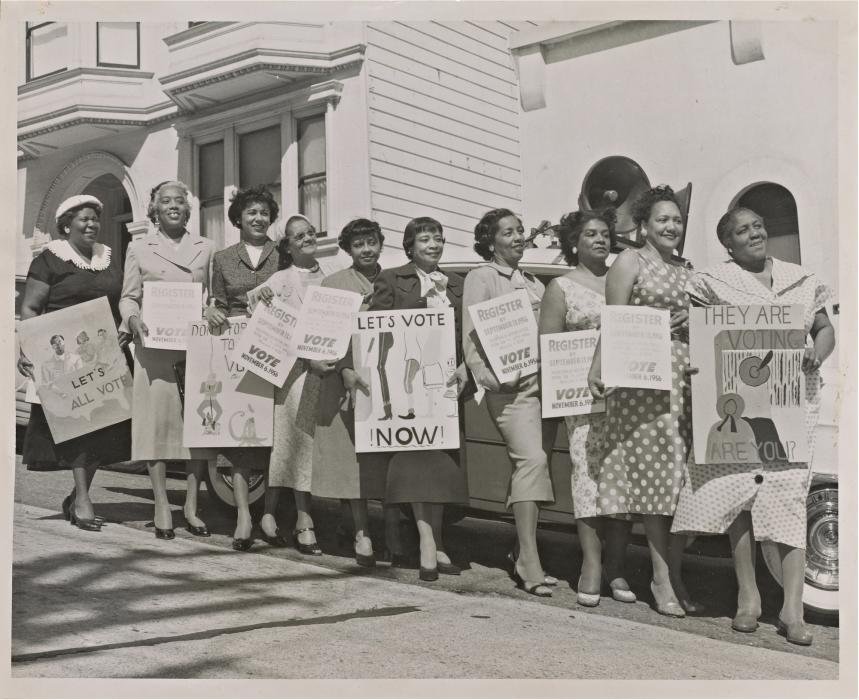
Voting Rights History Quiz
Quiz by Teaching for Change
We’ve all seen the iconic image of President Lyndon Johnson signing the Voting Rights Act of 1965. But what do we know of the history that led to the signing of the legislation? This quiz can challenge assumptions, deepen understanding, and inspire further learning about the voting rights struggle.

The March on John Philip Sousa: A Social Action Project
Teaching Reflection by Elizabeth A. Davis
Students fight to save a historic D.C. school building that was part of the Brown v. Board of Education court case.

Civil Rights Movement Mythbusters Quiz
Quiz by Teaching for Change
Through this quiz, and the answers that appear after each question, participants learn some of the history of the Civil Rights Movement that is all too often omitted from the textbooks.
